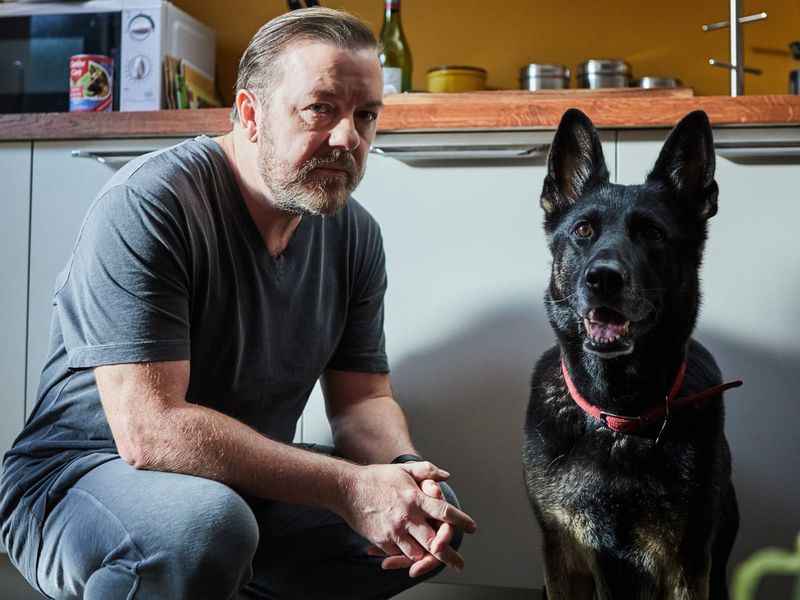Ricky Gervais’s After Life hit all the right notes when it first debuted. It wove a poignant and often darkly humorous narrative about the complexities of losing the love of your life. The subsequent seasons were watered down and felt like a rehash of the first season.
Drawing from his stand-up material, Gervais crafted a series that follows its protagonist, Tony Johnson, who is dealing with the aftermath of his wife’s death after a long battle with breast cancer. He tries to make sense of a life which has suddenly been rendered pointless and find meaning to keep living again.
Tony works as a newspaper writer in the fictional town of Tambury while dealing with a newly developed streak of self-destruction. He even contemplates suicide as a means of punishing the world for his pain. However, amid all this turmoil, Tony discovers the power of human connection and compassion.
As the series completes a three-season arc, Tony gradually evolves from a cynical misanthrope to a beacon of empathy and kindness. If you need a recap of how things end for Tony in the third season of After Life, then read on.
How does After Life season three end?
Tony and Emma’s will-they-won’t-they relationship comes to a conclusion. He realises he is not ready to move on from Lisa and encourages Emma to date her old schoolmate.
Tony reminisces about his first encounter with Lisa at Tambury fair, where they joked about the afterlife, where he had dismissed the idea. Anne tells Tony that she believes in angels and sees Tony as hers. Inspired by this conversion, Tony visits a cancer hospice with Lenny, bonding with a sick child over humour. He vows to visit daily until the child recovers. When the child mentions he might end up in heaven, something shifts in Tony, and he finally embraces the idea of doing good for others. He decides to use Lisa’s life insurance payout to help everyone who has supported him.
In the final moments of the series, Tony finds himself at Tambury Fair, surrounded by the familiar sights and sounds of his community. Walking alongside his beloved dog, Brandy, Tony is joined by the spectral presence of his late wife, Lisa. Their ephemeral reunion, however, is temporary as Lisa gradually fades away, followed by Brandy and eventually Tony himself.
This conclusion sparked speculation among fans regarding Tony’s fate. Does he kill himself? What happens to Brandy? Ricky Gervais offered insight into the symbolism behind the finale. The presence of Tambury Fair serves as a reminder of the cyclical nature of existence, where individuals come and go, but life persists.
Gervais told Digital Spy, “It’s just that life goes on, you know? When we’re all dead and buried, that field’s still there, the Tambury Fair is still going, that tree is still there, and it’s basically said that we all die, but not today.” He went on, “That’s what the ending is saying. ‘We all die, but not today’. Enjoy it while you can, life is so finite. Whenever you are born, and whenever you die, it’s all over. So enjoy that bit, that tiny little bit.”
Gervais concluded his thought with a statement that is bound to make you think of the cosmic beauty and insignificance of your time on Earth, “You don’t exist for 13 and a half billion years, then you have 80-90 years if you’re lucky, and then you die, never to exist again.” Then he landed the final punch, “So all you’ve got is experience, and then you’re dead and buried and forgotten.”
You can tune into After Life on Netflix now, but first, catch the trailer here:
